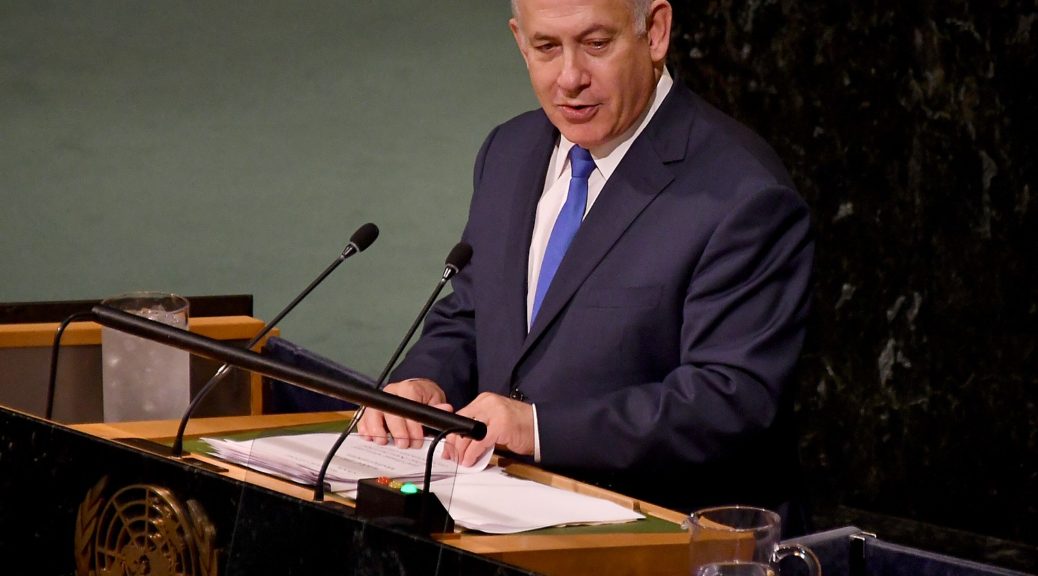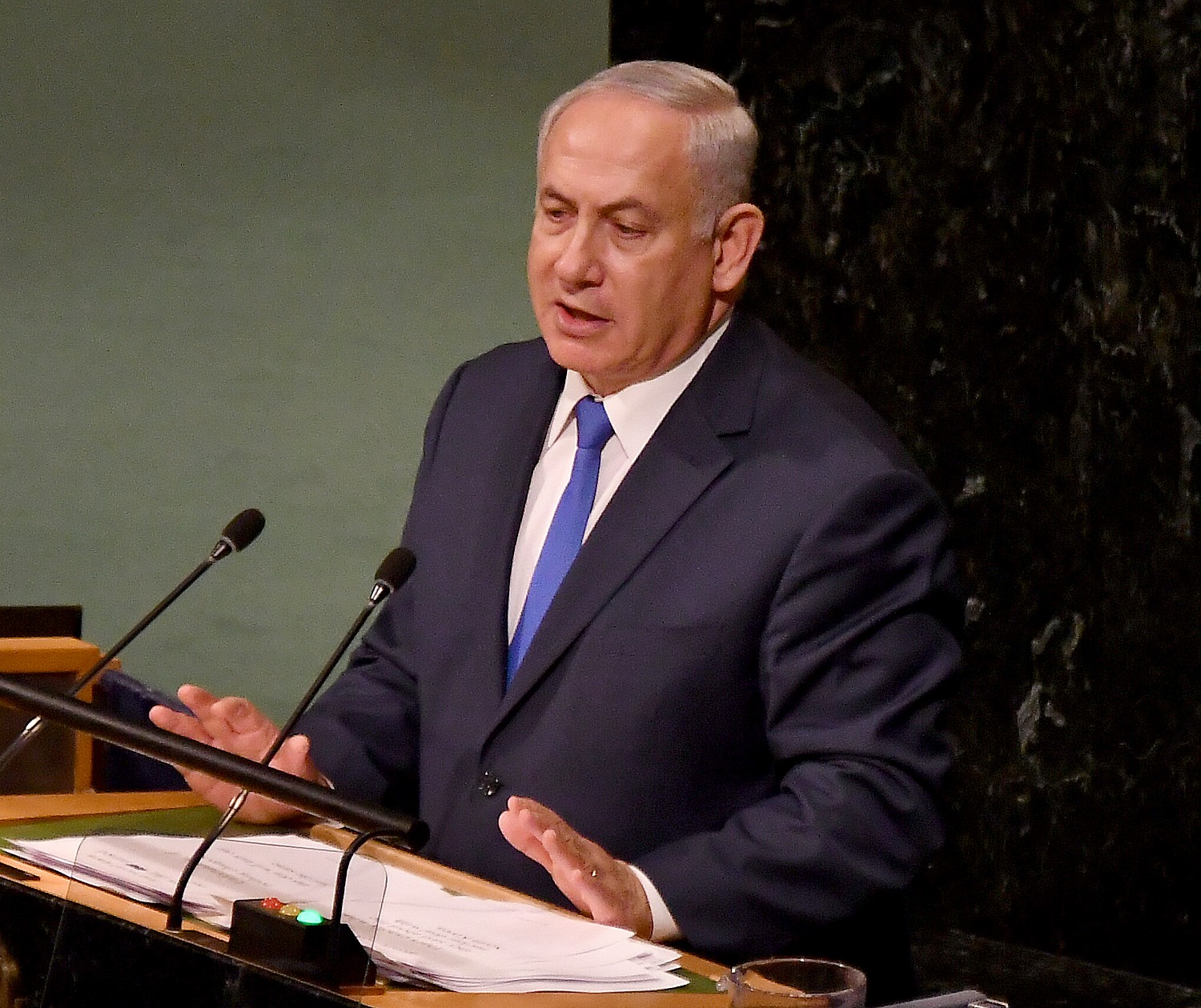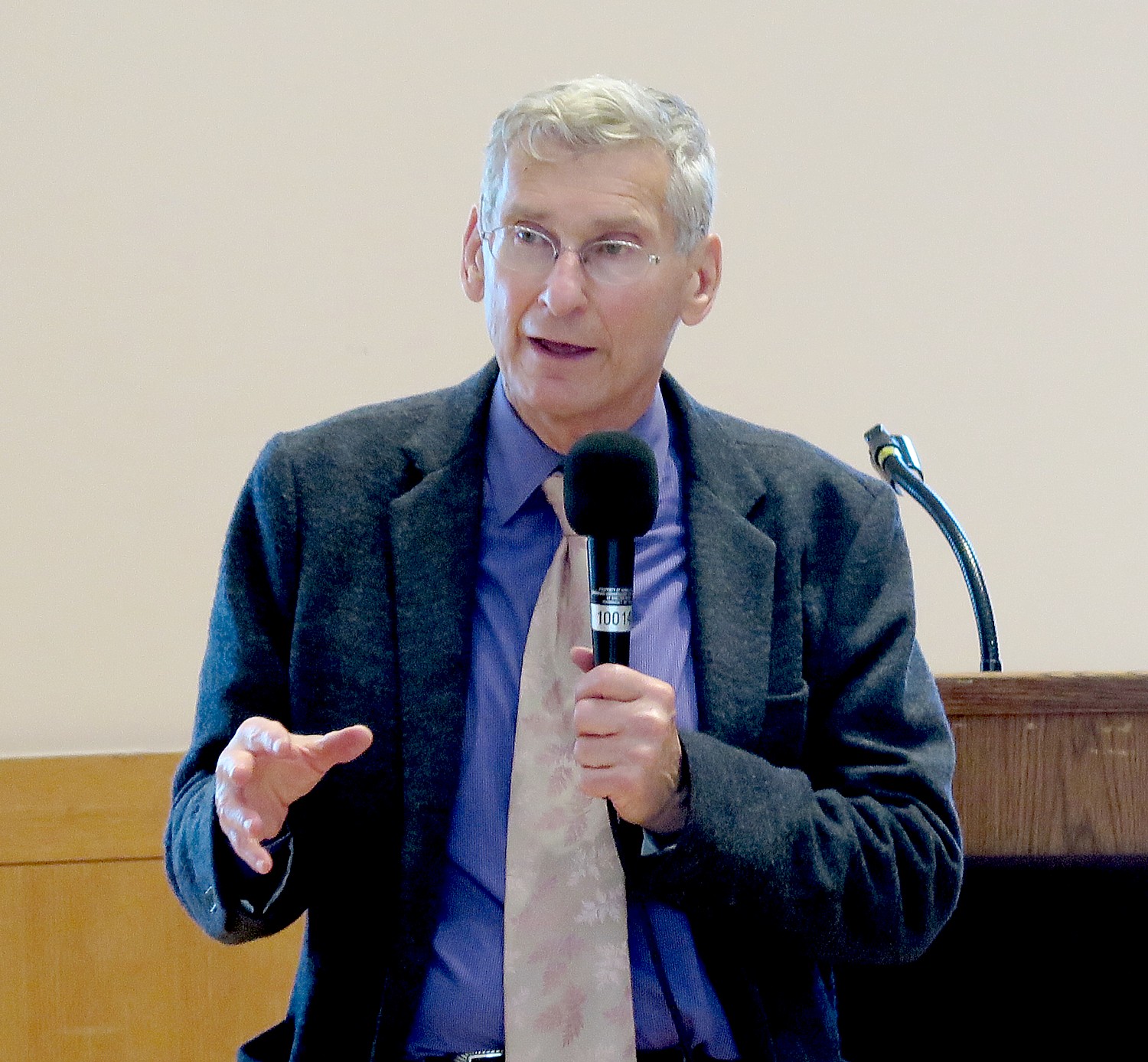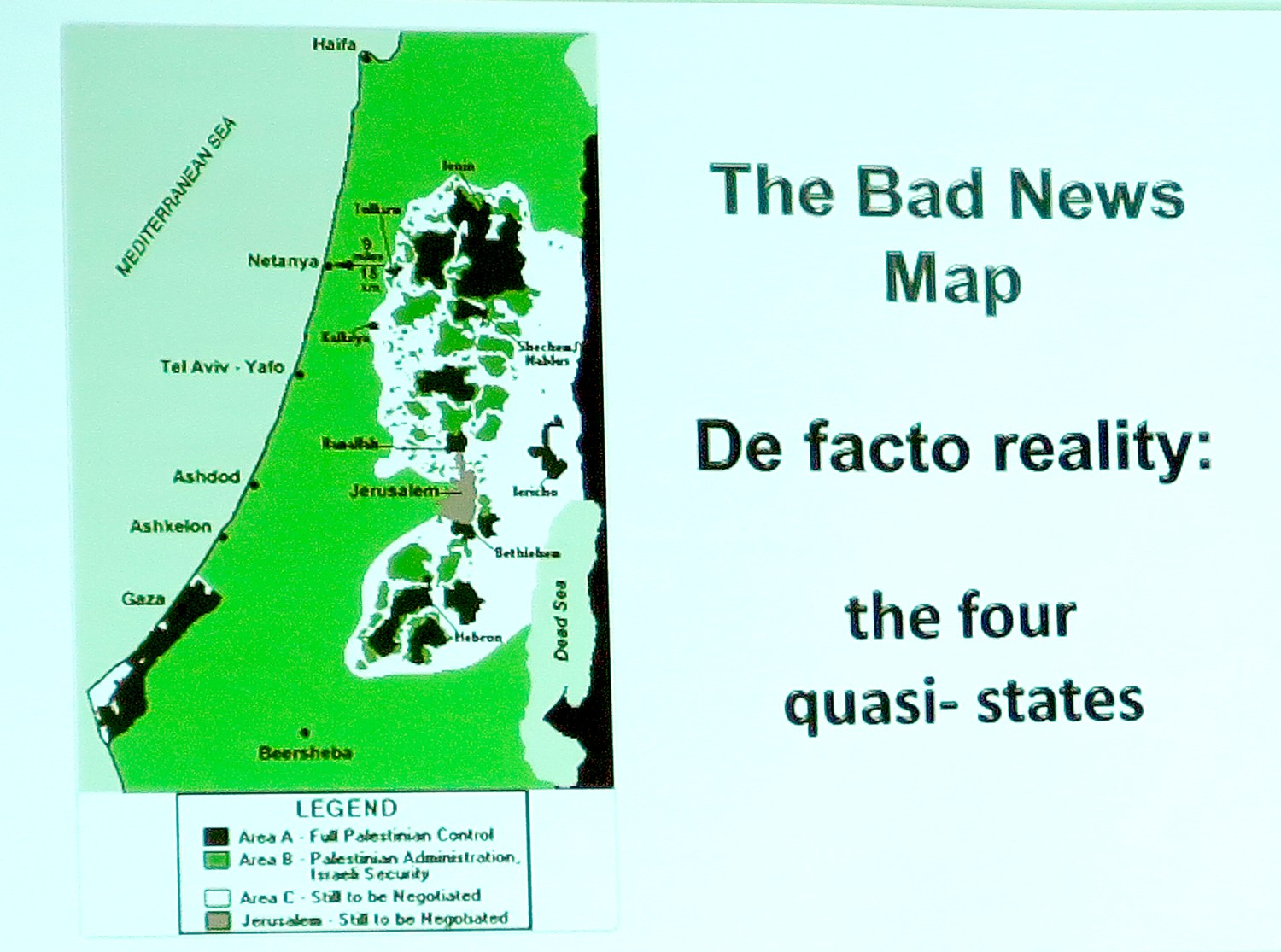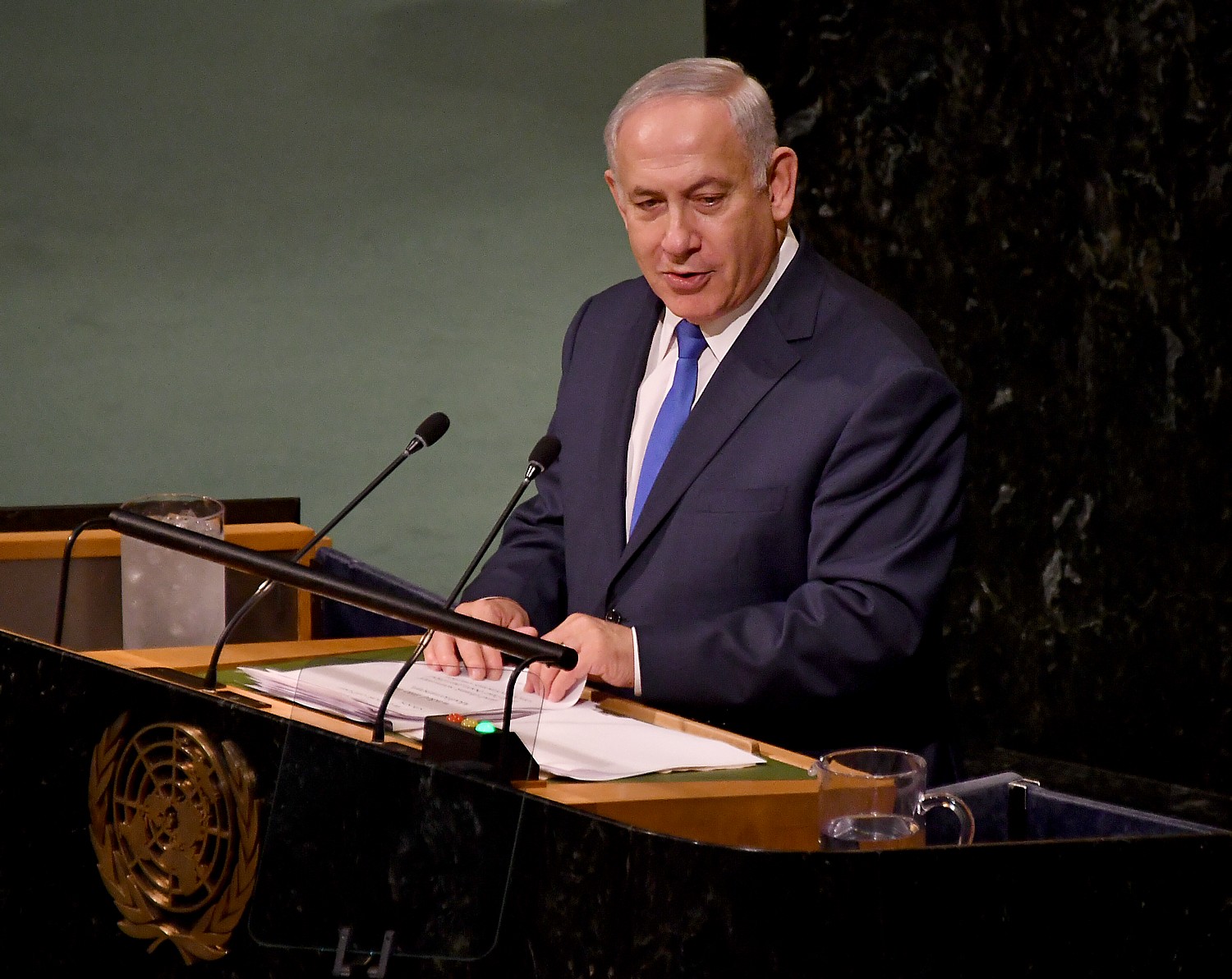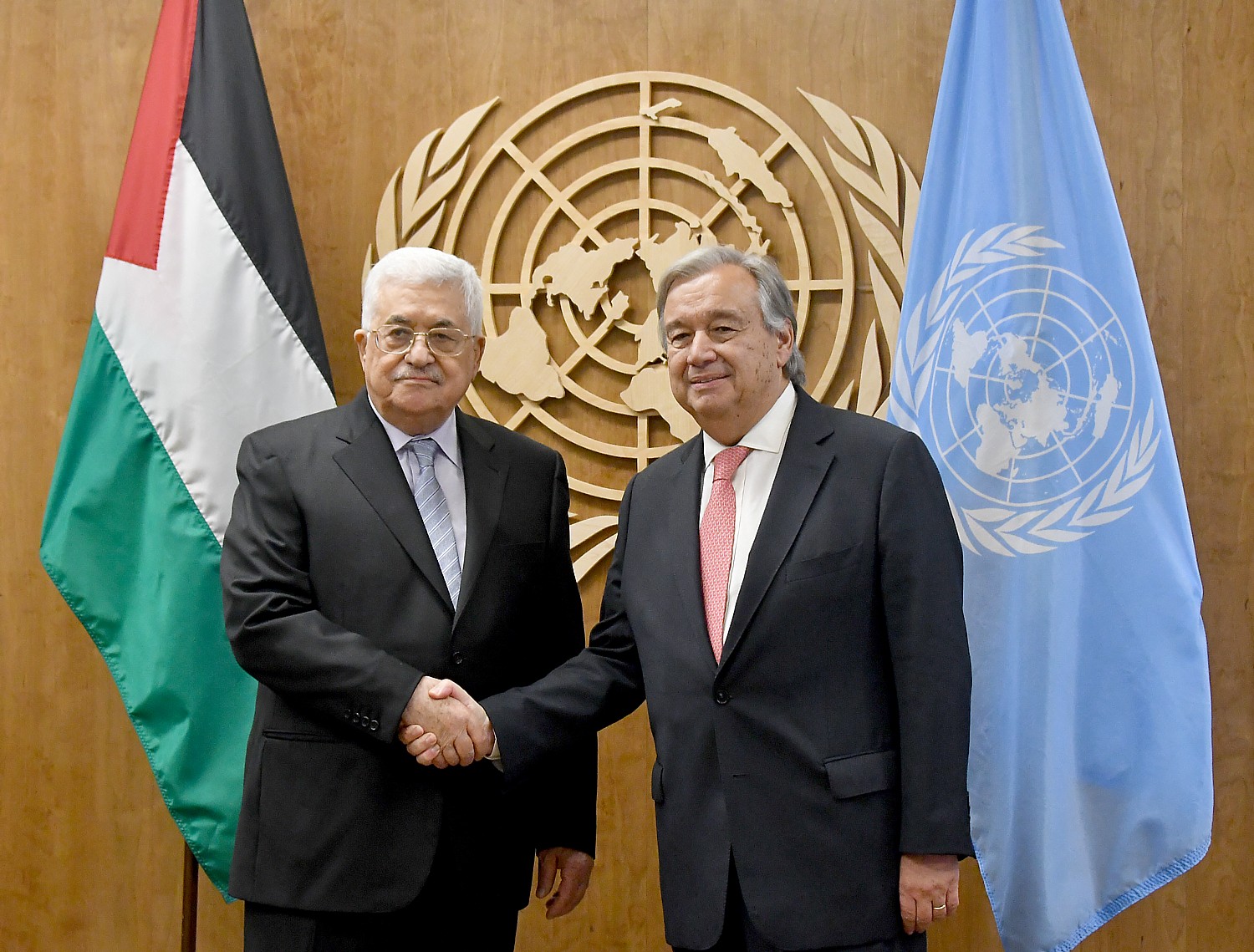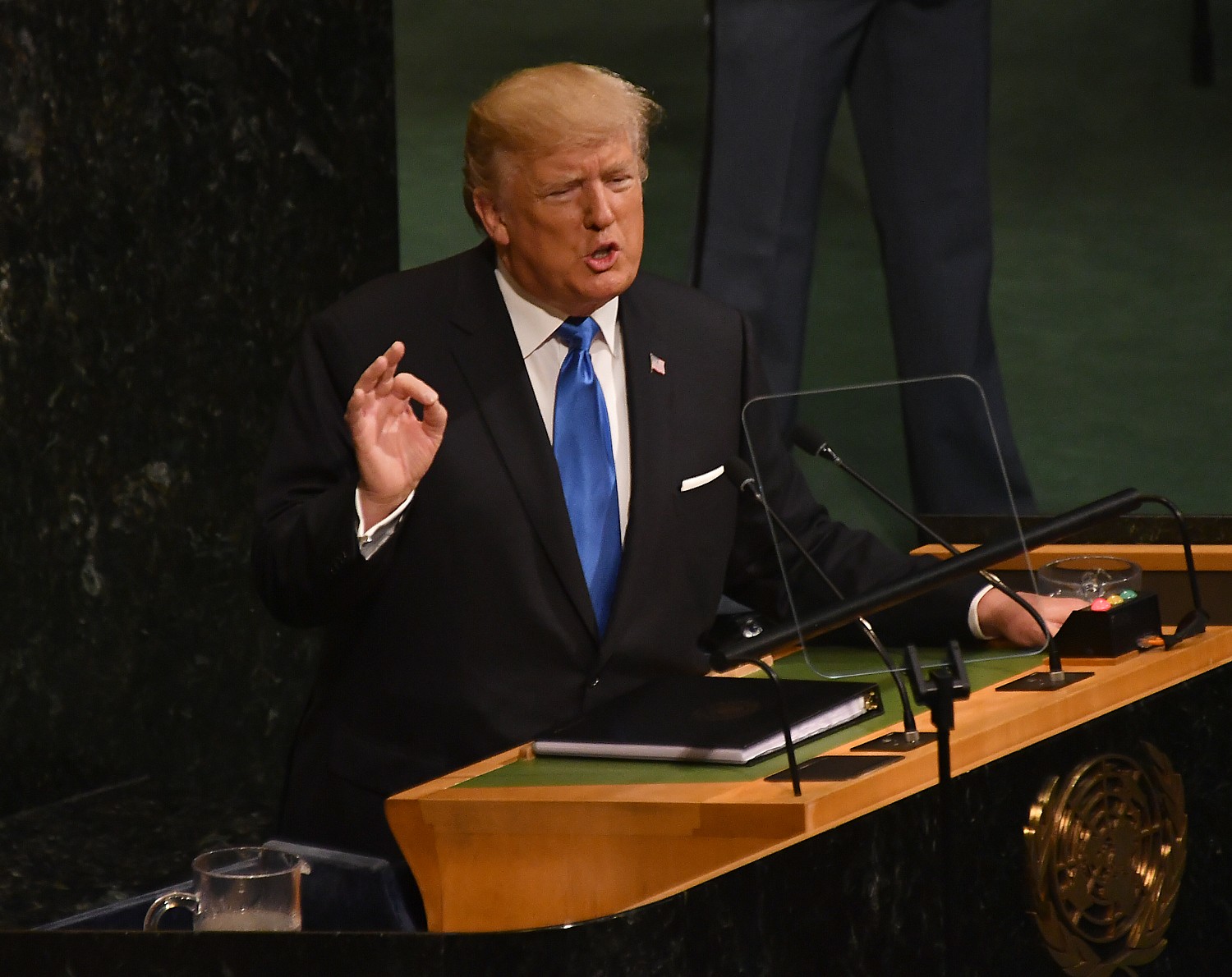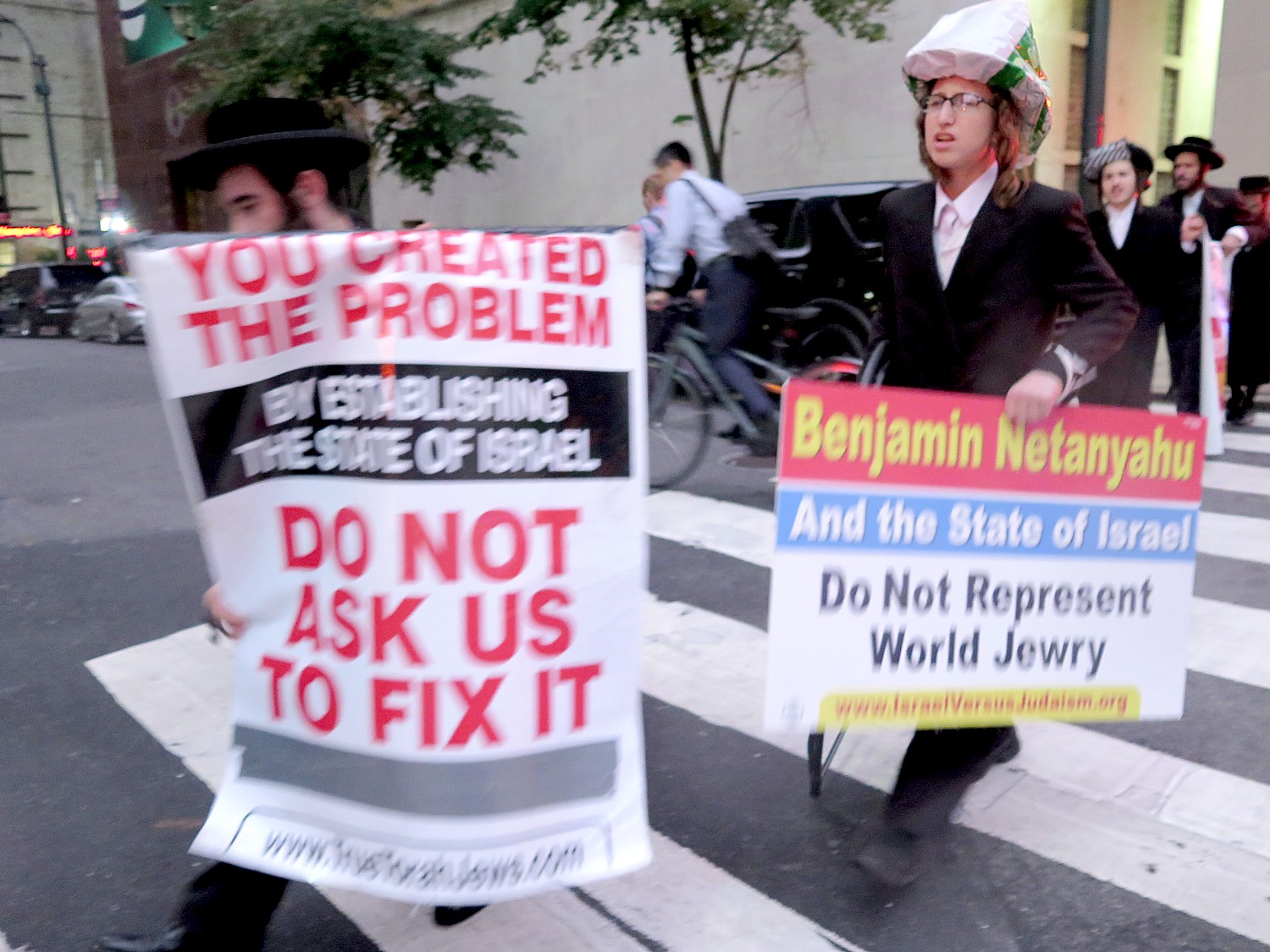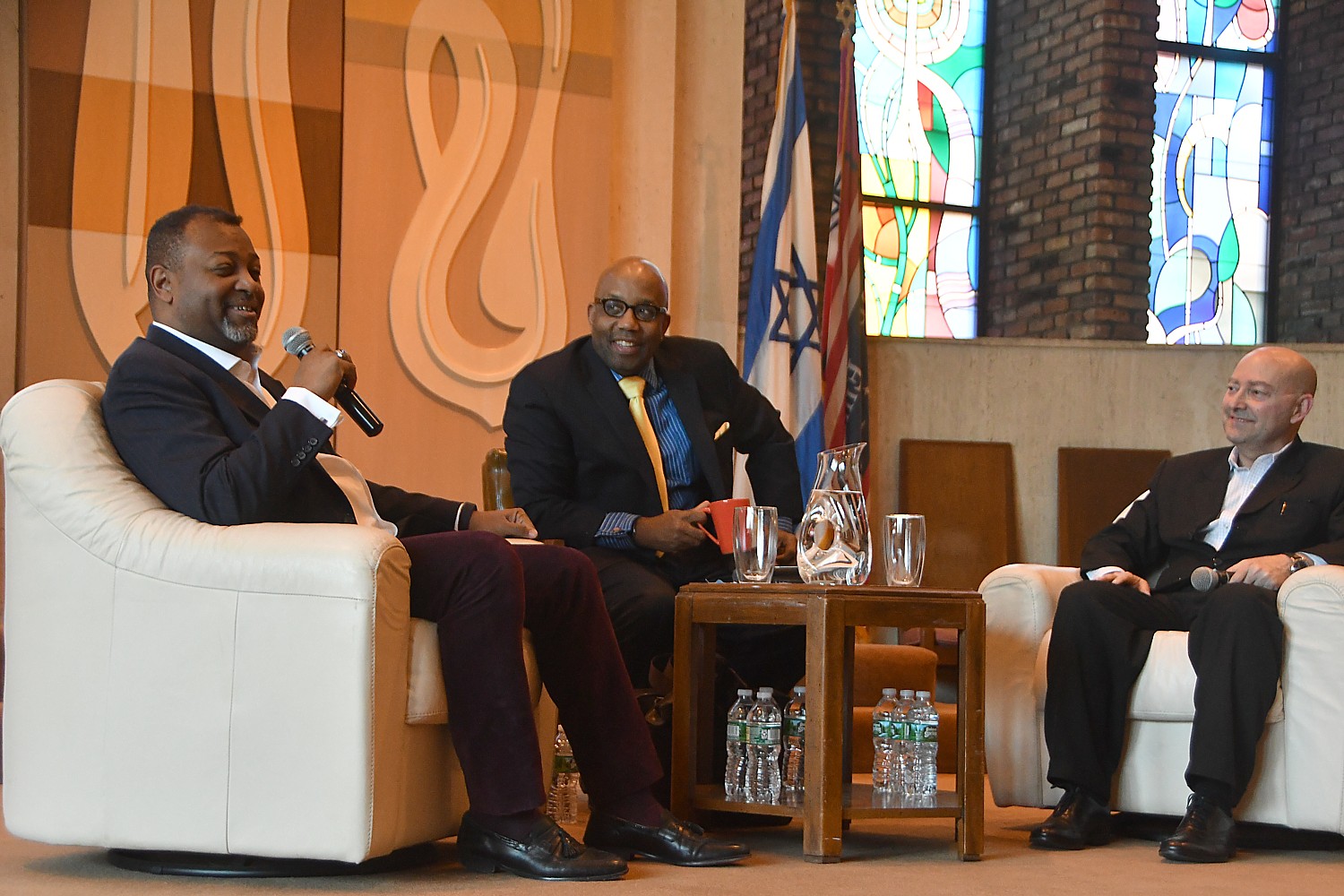
By Karen Rubin, News & Photo Features
A dialogue between Malcolm Nance, a renowned counter terrorism and intelligence consultant for the US government’s Special Operations, Homeland Security and Intelligence Operations, and 4-star Admiral James Stavridis who was the 16th Supreme Allied Commander at NATO, senior military assistant to the Secretary of the Navy and Secretary of Defense, moderated by Errol Louis, a political anchor at NY1 News, took place at Temple Emanuel of Great Neck, Long Island on March 18, 2018. It proved to be a seminar on foreign policy, with some tough words for the need to defend democracy against a tide of anti-democratic, authoritarian forces both domestic and foreign. “We have to solve this –at the ballot box.”
Here are highlights from the provocative discussion:
Errol Louis: Moderator: Both of you were at the Pentagon on 9/11; Nance was even an eyewitness. With the rise of terrorism, how safe are we?
Malcolm Nance: Since 9/11, we went for a short while in the correct direction in counterterrorism, bringing the world together to confront global threat. Unfortunately the invasion of Iraq in 2003 broke the mechanisms in Mideast that were functioning – poorly, but indigenous – strongman dictators. Once we invaded, we unleashed demons we could not foresee. The ebb and flow of regional solutions all went out the window.
Before, the hardest problem was people trying to solve Palestinian problem. That’s nothing compared to radical Islam. You can negotiate with Palestinians, even Hamas, groups in Iran.
We have a bigger problem: just keeping the democratic norms in the world, not just US. Democracy as an ideology is now under attack, every day.
Admiral James Stavridis: I agree. Go back 100 years – 1918. The world is coming out of World War I, Spanish influenza pandemic sweeping, 40% of world’s population were infected, 20% of those will die. US walking away from Europe, isolating ourselves, rejects the League of Nations, erects enormous tariff barriers – cracked the global economy. You can drop a line from that to the rise of fascism and World War II. That is a dark global picture.
We have mechanisms to deal with many of the challenges but agree [with Nance] that the whole ideology of democracy is wrapped up in great power politics, the rise of two authoritarian figures- Putin [just “re-elected” to a fourth term]. President Xi Jinping isn’t even putting on faux election, he declared himself the new emperor. These authoritarian systems are a challenge to democracies in ways we haven’t dealt with in 100 years.
We have two other concerns: a new pandemic – don’t spend much time thinking – but every 100-200 years of human history, a pandemic rises, despite fact of enormous advances in medicine. We are due for one – ability to manipulate genome can allow dark dark work. [Consider how Trump has cut funding to the CDC, and would likely not step in to stop a new outbreak of Ebola or Zika outside the US.]
Our vulnerability is in cyber. We are utterly dependent on massive cyber systems. We are at great risk – that’s where the two strains – cyber vulnerability and way authoritarian regimes will come after us – those streams are crossing – we have work to do, tools,
So, how safe are we? We have challenges, but I am cautiously optimistic. The question is whether our democracy will put in the right people.
Louis: Pointing to [Trump’s] new direction in foreign policy [and the fact that the State Department is considering removing ‘human rights’ from its mission statement], why is it to our advantage to fight for democracy and human rights and why is this not a form of international charity?
Nance: NATO, after World War II [was devised] to stop wars by creating a grand alliance – to spread that ideology around the world., not just American democracy, but allow others to develop their own form of republic, democratic governorship, whether a constitutional monarchy or a republic like France. That is under attack. Democracy is in retreat. ‘Democracy’ has been removed from mission statement of the State Department.
When we were struck on 9/11, it hurt me deeply – I spent my life in worst parts of world getting back. Now, that threat is from within – people in our country do not believe in democracy; autocracy, as being pushed by [Putin] former director of KGB, is better alternative to liberal democracy and European parliamentary democracy-Iit’s all under attack.
It is not a charity – America doesn’t do this as charity. We invented globalism – in WWII –we literally dropped it out of airplanes; people wanted our products at the end of war. Now people believe our system of economy is fundamentally wrong, NATO should be disbanded, the European Union should go away and every country in Europe should be its own autocracy with Moscow as polar center. There are people in US government who believe that.
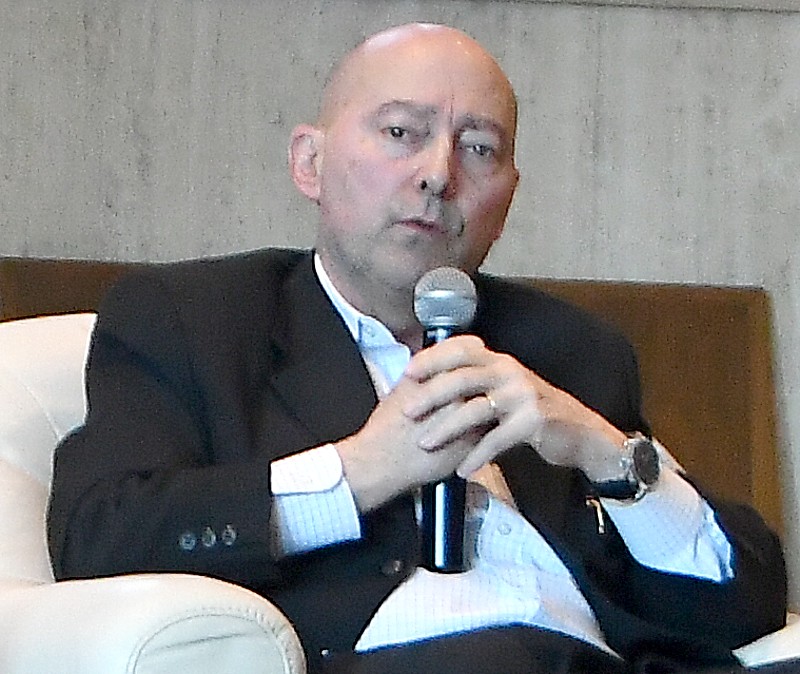
What do we do about it? What’s our move? A couple of different things can do – continue to rely on a system of alliances – that’s why we should worry about tariff barriers, and walking away from NATO, that take global structures apart. We need to rely on those. We need to get vastly better at strategic communications, explaining our ideas. War of ideas? It’s a marketplace of ideas. We have to compete – democracy, liberty, freedom of speech, education, assembly, racial and gender equality – we execute them imperfectly but they are the right ideas. We have to communicate that in ways that get beyond ‘We have the right answer.’ Lay it out pragmatically: why it works. Because there are forces pushing against it.
Louis: Trump’s statements about NATO alarmed people, [yet] US deployed troops to Poland as part of NATO task force exercises. Is his rhetoric worse than reality?
Stavridis: Candidate Trump said NATO was obsolete and he would consider pulling out altogether. Fortunately, on this subject, he [appears to have] listened to General Mattis, the Defense Secretary; General McMaster, National Security Adviser [so far], Secretary of State Rex Tillerson (oops). But on NATO, I am cautiously optimist he has gotten the message that NATO really works.
Nance: NATO is 28 nations, 52% of world’s GDP, 3 million troops under arms, 24,000 combat aircraft, 800 warships, 50 early warning aircraft – it is the richest, most powerful alliance in human history. US spends $600 billion/year on defense, the Europeans $300 billion. To put that into perspective, Russians spend $80 billion, Chinese $150 billion. We outspend in part because of our European allies – they should spend 2%, and are on track to do so in next 3-5 years. The alliance remains fundamental to US – it is pragmatic value for US to be in alliance.
Where did this idea come into Trump’s head that NATO wasn’t a good value, that US was connected to countries not paying their fair share? In November 2013, Trump went to Russia for the Miss Universe pageant and while he was there, he was brought to a private 2 hour meeting arranged by Aras Agalarov, [a billionaire Russian real estate mogul with ties to Putin] who funded the pageant, in a restaurant owned by Galaroff. [Trump] came out of that meeting spouting the Kremlin party line – anti-NATO, anti-globalization, anti European Union, anti treaties and alliances, believing that Russia is the premiere superpower. The only thing we don’t know is whether he believed it or whether some inducement got him to believe – he said it during campaign. Now he seems to have some change of view. NATO [which Admiral Stavridis once commanded] unilaterally evoked Article 5 after [the US was attacked on] 9/11 – for 10 years they gave their blood and treasure to defense of this nation. This is the single greatest force for good since world War II. Russia wants to do away with NATO – they call us Atlanticist, globalist – their philosopher Aleksandr Gelyevich Dugin [who holds fascist views] convinced Steve Bannon, almost the Goebels of the anti-democratic movement, goes around the world, trains, help foster other countries to believe the Atlantic alliance is the problem in the eastern and western hemisphere.
Stavridis: Why NATO matters: 1) The values we share. We will never see another pool of partners who have these values. It is no coincidence because [the Founding Fathers] got them from Europe, from the Enlightenment. 2) The geographic position of Europe matters – why we need those Cold War bases in Europe – those are forward operating stations in the global war on terror 3) It’s the economy and trade between US and the NATO countries.
Also, when I commanded 150,000 NATO troops in Afghanistan, the nation that lost the most on a per capita basis was Estonia. Number 2 was the Netherlands. The US was number 3. They were with us in that fight because we had been attacked on 9/11. This is an alliance that stands and delivers for us. (applause)
Louis: What does [Trump’s] firing of [Secretary of State Rex] Tillerson mean in the broader sense. Is it deliberate, a competence question, a larger crisis, an administration not executing?
Stavridis: When Secretary Tillerson got the job, I thought it was a good choice –a global businessman, contacts all over the world, quiet, laconic, very serious Texan, tough minded. I thought it an interesting choice, it might turn out well. But Tillerson simply was not a very effective Secretary of State. He couldn’t gain real connectivity in the White House – in a state of constant chaos. How can you be Secretary of State for a president who one minute, says, ‘We will solve Korea with fire and fury like never seen – a preemptive declaration of war –and three months later, be ready to go and cut ‘the deal of the century’ – a defensible policy choices but not for same person. So to be Secretary of State trying to articulating that –the work of Sisyphus, boulder rolling down. As a result, morale in the State Department cratered, applications for foreign service are down 50% in the last 2 years. You don’t get that back –you lose a generation if you can’t fill those slots, let alone, not filling crucial ambassadorships [including South Korea]. This is as bleak a moment for American diplomacy. A chaotic inexperienced White House that sadly doesn’t seem to be getting better in 14 months (feels like 14 yrs).
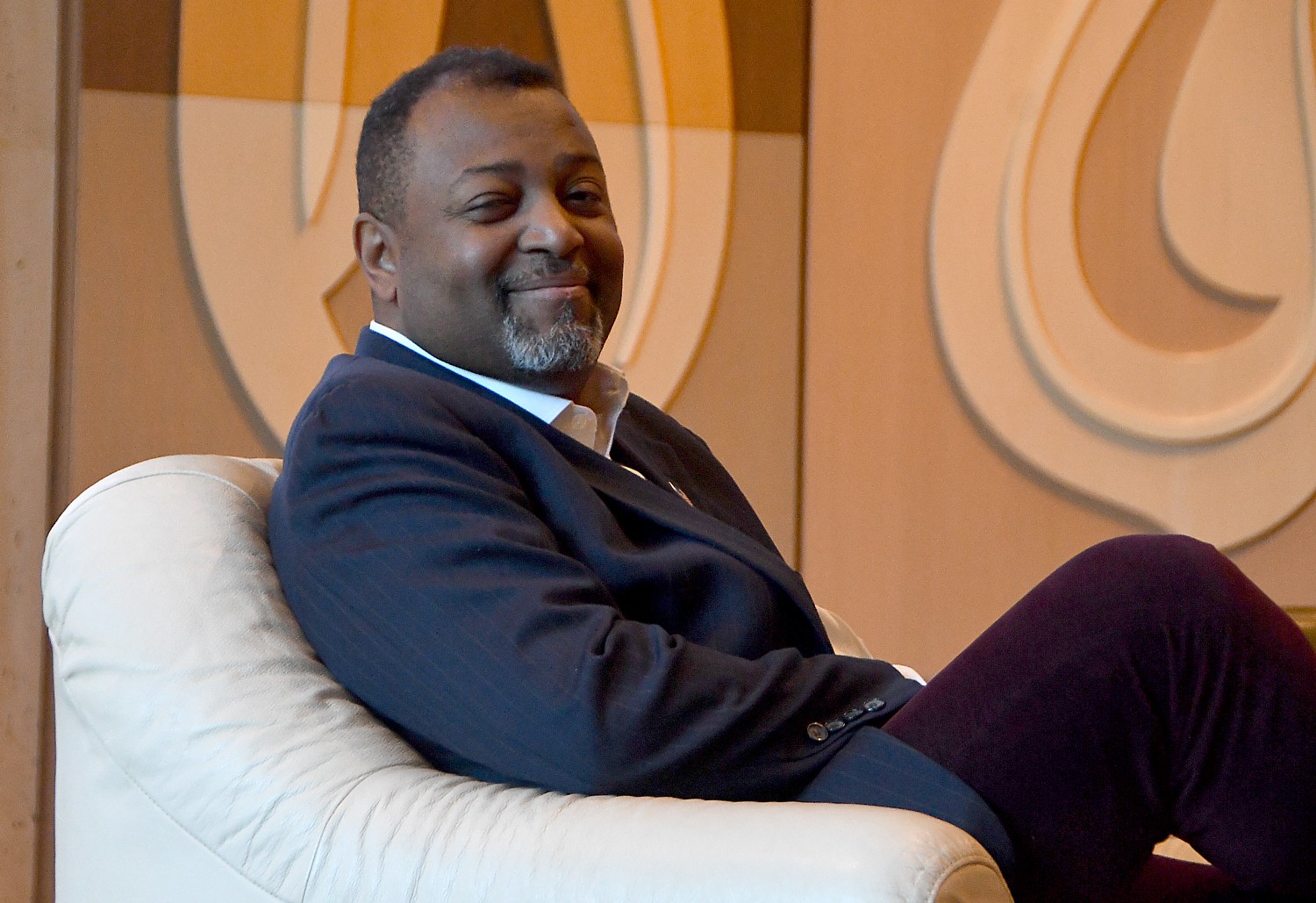
Louis: Will the opening of US embassy in Jerusalem bring about a cataclysm?
Nance: It could happen. What’s happening in Mideast – so much change, dynamics. You can even see in how the Israeli-Palestinian problem is pushed off – rise of Iran, Syria, Turks invading northern Syria and setting up against the entirety of Kurds (who we fund), Yemen. Palestine-Israel conflict is the ‘good ol days.’. When the deed is done, and US embassy is moved, Saudis may give head tilt to that. I don’t know if there will be another intifada – the strings were cut after the Iraq invasion.
Stavridis: These kinds of conflicts – religious with a geopolitical overlay – are very dug in, and go on and on. The really bad news is that in middle is our greatest friend and ally in the region, Israel.
What should we do? Four things: stand with Israel – (applause)- the reasons are pragmatic, values, all the same things that make us want to be in NATO, should energize our alliance with Israel – 2) Need to work closely with Sunnis (Saudi Arabia, Gulf States, Egypt, Jordan). The Saudis are giving head nod on the peace plan, drawing closer to Israel, willing to exchange information, intelligence, missile defense, early warning. Why? because both are concerned about Iran (which is Shi’a). We ought to understand the Iranian self-view: we think of them as mid-size power, they think of themselves as inheritors of the Persian Empire which 2000 years ago, dominated the region. That’s what they want to reconstruct. Working with Israel, alliances, better in cyber, insuring missile defense strong, stand with Israel.
Louis: How to address the humanitarian disaster in Syria, knowing Russia is smack in the middle?
Nance: We had the opportunity to crack this nut in 2012 after Assad’s chemical attack. I advocated then to destroy the Syrian air force utterly – that’s the strategic advantage Syria has over the allies. Then you have put Israel in powerful position; limits Iranian involvement (because they won’t have a runway to land), and gives opportunity to show Arab States here is a chance to use ground forces to do humanitarian intervention. Arab League, Egyptians, Jordanians, Saudis have enough forces to be in Damascus in 72 hours out of northern Jordan. But so long as Russia backed and Syria can resist, won’t do it.
Stavridis: We last saw a problem like Syria in the Balkans, 20 years ago: Yugoslavia blew up – forced migrations, 100,000s killed – like Mideast – Catholic Croatians, Orthodox Serbians and Muslim Bosnians – a religious war with geopolitical overtones that was ultimately solved by partition. Yugoslavia was broken apart and created sub-states. That was imperfect but at the end of the day, that is what will happen in Syria – it is broken now, and won’t go back- that’s 3-5 years away.
Why is Iran in Syria? Iran wants a land bridge so it can move missiles and fighters from Tehran to Lebanon because that endangers Israel. That’s why we need to move to international solution that somewhat marginalizes Iranian influence – can do with leverage over Russia – the White House needs to get tough on Russia.
Louis: China. The notion they now have a president for life there, with no mechanism to change leadership – if there are internal problems, if there is a falling out within society or economy or ideology in a bad place, what happens?
Stavridis: The good news is that China will continue to grow at 5%. If they do, the population will stay relatively quiescent. But China’s road gets rough in out years- demographics – an aging population, the imbalance between men and women created by the One-Child policy which led to killing baby girls. We’ve never seen a society as ill balanced. Plus, China’s environment is disaster, requiring billions if not trillions to remediate. The housing market is overheated (reminiscent of 2008 in US). With no democracy, there is no way to relieve the pressure. Xi will have smooth run for awhile, but it gets rough in 5-10 years. That’s when we should worry about Chinese foreign policy that is nationalistic, seeks to find a scapegoat outside, and look for conflict in South China Sea. (See the movie, “The Last Emperor,” about Puyi and read Robert Kaplan’s, Asia’s Cauldron”.)
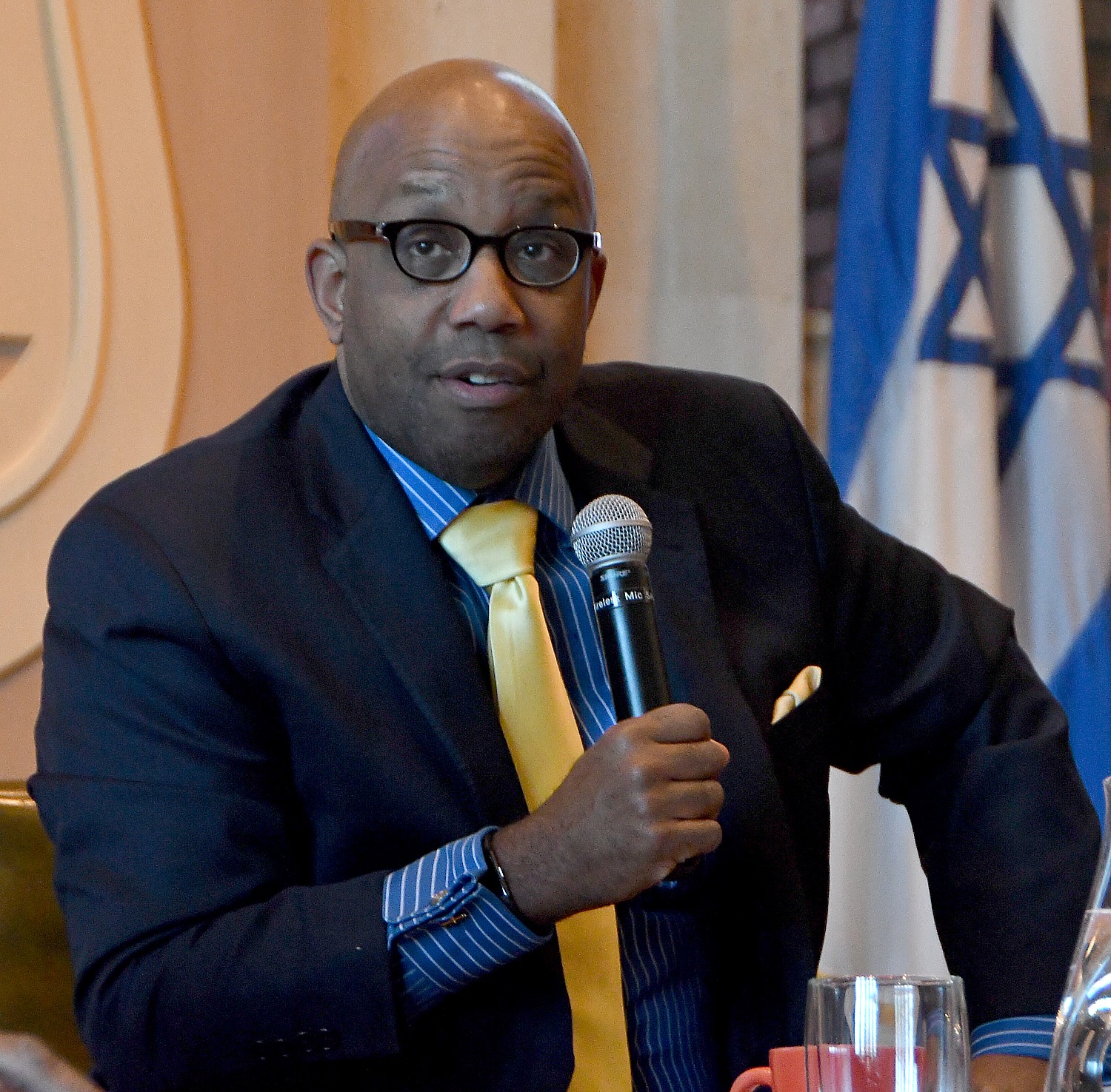
Louis: What is Putin’s end game?
Nance: Putin has imperial goals – Atlantic Alliance between Washington and European states has since WWII brought economic, cultural influences Russia cannot stand – They believe it has marginalized Russia’s limited economic power. All the good that has come from NATO, the EU single market, the US flow of traffic across Atlantic does no benefit to Moscow. Putin realizes that 75% of Russians live in the European part (75% of land in Asia). He believes Russia should be the pole in which Europe should do trade – EurAsianism. He is ruling more like Czar Nicolas I – religious orthodoxy, nationalism, autocracy (while France was creating fraternity, liberty, equality). Russia is buying every conservative, neoNazi group in Europe – owned, lock stock and barrel by Moscow.
Last march, for the second time in American history, France saved democracy – had Marine Le Pen won, France would have withdrawn from NATO,broken up the European Union and aligned France with Moscow, bringing along everyone to Moscow.
Stavridis: Putin’s end game: H will be the dominant force in Russia until the day he dies, and Russians accept it. This is Russian custom, history, culture. Read literature- Dostevsky, Pushkin – how Russians look at powerful male leaders. Sometimes they get a Peter the Great, the next time Ivan the Terrible; sometimes get Stalin, but then get a Gorbachev – they are willing to roll the dice. But the dice have landed on Putin, he will not give up power. We have to deal with this operative. I met Putin a couple of times. Bush Jr. met Putin and was completely taken –he said, ‘I looked into his eyes and saw his soul. We can work with Putin.’ McCain, a true war hero, met with Putin and said, ‘I saw 3 letters: K-G-B.’ I think McCain got that one right – and that’s what we will deal with.”
Q&A
Is climate change a national security issue?
Stavridis: Climate change is a significant national security threat. Because of global warming, ice is melting in the Arctic, opening up shipping lanes and hydrocarbons, creating a great power competition – on one side is Russia, on the other side US, Canada, Iceland, Norway – they are all NATO; 2) Rising sea levels gradually affect our ports, our ability to operate in major naval bases and ports 3) Global warming will impact our ability to operate globally because of cost – we will have to mediate against environmental concerns, which will put downward pressure on defense budgets 4) What should worry us most is that as oceans heat up, photosynthesis is diminished affecting oxygen in the atmosphere. Vice President Gore called the Amazon the lungs of the earth; Nope, 70% of oxygen comes from photosynthesis in oceans, and we are abusing them. These are major national security concerns.
What if in the next few months Trump abrogates the Iran Nuclear Treaty?
Stavridis: I expect Trump to abrogate the Iran Nuclear Treaty. 1) That will have chilling effect on negotiations with North Korea – they are unlikely to enter into grand bargain having just witnessed the abrogation of the Iran treaty. 2) Iranians will almost immediately restart their nuclear program – they are probably in primed position to do so. 3) The treaty is not perfect but ending it will put Israel at greater risk because of re-energization of the Iranian nuclear program 4) Allies will be furious, it will put enormous strains on the NATO alliance, and probably not lead to European allies walking away, so US will become even more of an outlier. I wasn’t a fan initially – it isn’t a good/bad deal, it is a done deal, the best we could have at this point.
Nance: I spoke with a senior briefer at CIA who briefed Obama on the details that convinced Obama to sign the Iran Nuclear Treaty: The way the agency assessed, Iran was 6-12 months away from developing an atomic bomb, but with the treaty, Iran gave up all components, 90% of its enriched nuclear material and was pushed back 15 years We do not want a war with Iran. Why would we put ourselves in a position to give Iran the ability to have a nuclear weapon? There is no limit to the mischief that would create. And if [unleashed], Iran would go straight to North Korea with $ millions to buy a nuclear weapon.
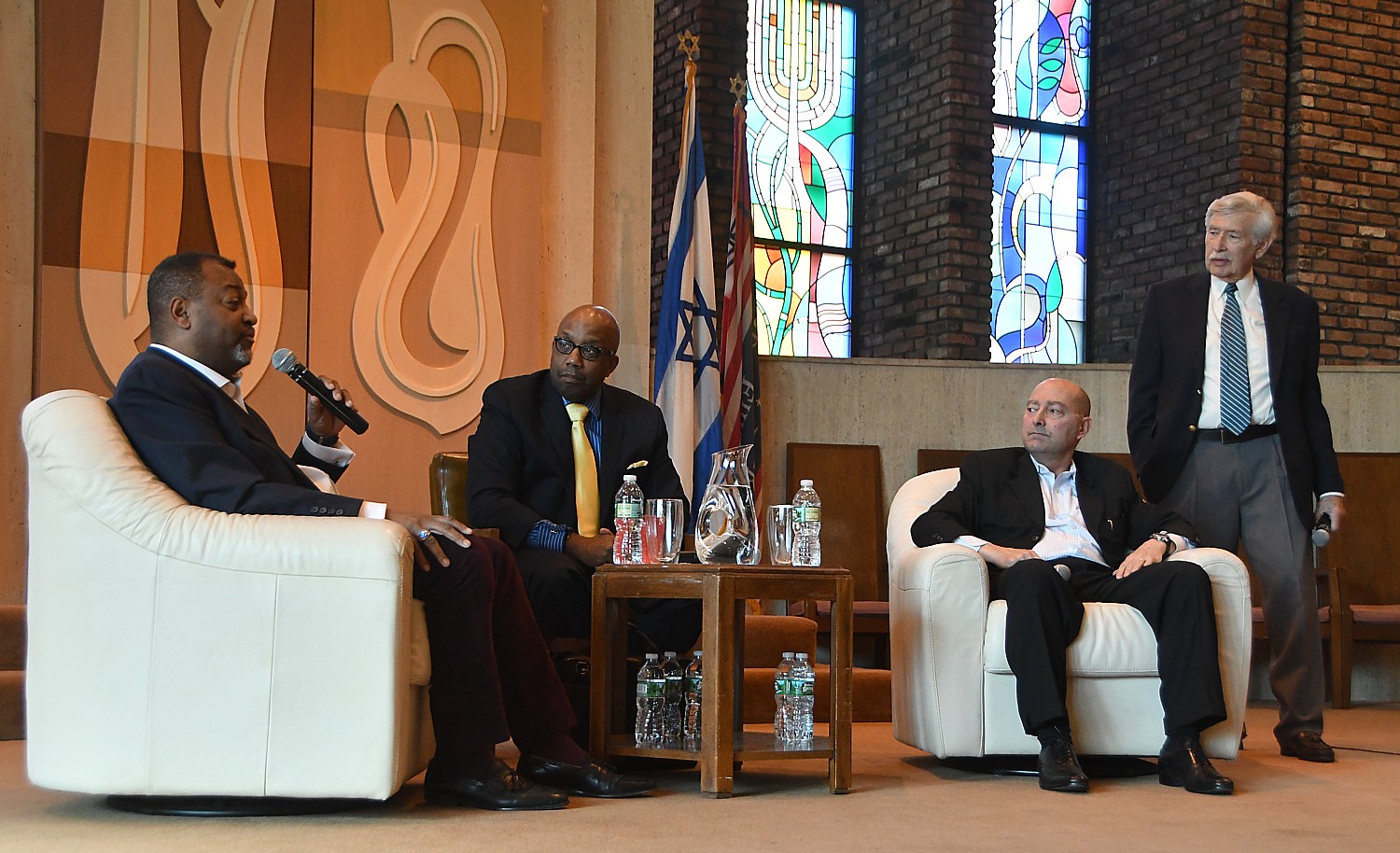
How to solve the humanitarian disaster that is Syria?
Stavridis: A combination of defense, diplomacy, development – hard and soft power. [This was shown to work in Colombia, after a 60-year insurgency that destroyed the fabric of the country; and the Balkans.] You don’t have to choose hard or soft power. So often, the long game is combination of all those tools – development, diplomacy and defense when need it – to get balance right, requires leadership. We are very good at launching missiles. We need to get better at launching ideas. We can do both. (Applause)
Nance: That’s smart power. We are a global force for good but have to be global force for diplomacy.
Considering the hollowing out of our diplomatic forces to the benefit of Putin, [possible collusion] in cyberwarfare, why is there reluctance to use the word ‘treason’ in regard to Trump?
Nance: There is a legal definition – Article 3 – to ‘treason.’ You literally have to be at declared war with an enemy and give aid and comfort to enemy. That is rarely invoked – we have sent people to prison for espionage, divulging secrets but the last time anyone was tried for treason was the Rosenbergs. I don’t think that word applies legally – from what we’ve seen. Where the president violated his oath of office, you can use ‘treason’ rhetorically if you feel betrayed, or ‘treachery’. I don’t think will be able to use ‘treason’ in legal sense . this investigation started as national counter intel – a spy hunt – still a hunt for citizens in direct communications with foreign intel officers.
What check is there on this president who many think is a madman, is the military prepared to step in and save democracy?
Stavridis: ‘I solemnly swear to support and defend the Constitution against all enemies foreign and domestic – no expiration. The military isn’t going to step in and solve this. We have to solve this –at the ballot box. In 1840, Alexis de Toqueville wrote about this strange new phenomenon of democracy. He was largely laudatory, but the punch line: ‘the tragedy of democracy is that in the end you elect the government you deserve.’ We need to own this problem. No one will solve it for us. We need to get out in November, and again two years later, and we can solve this problem.
Nance: We have entered the greatest period of political activism – I believe it will even eclipse the Vietnam era – 1968. But since World War II, we have gotten fat and lazy and enjoy fruits of democracy.
We have guardrails – you have 246 days to solve part of this problem – but to do that you have to bring yourself and everyone who has not voted in last election.
The military is not designed for coup d’etat. We would really be a third world banana republic. But we can stop stupid – unlawful orders.
Emperor Xi. China building pipelines through Africa into the Stans, helping China, become #1 in world, developing 5G. How will that affect us?
Stavridis: China historically has not had global ambition, but 16 months ago, President Xi gave a “coming out speech” at Davos for China in the 21st century: One belt, one road philosophy – using economic power to further the interests of China. China just built its first overseas military base, at the Horn of Africa. China is on the move. When historians 300 years from how write about the 21st century, how that story comes out will be US and China and the rise of India. We need to be mindful of China, align with India, hold close our global allies, help develop this hemisphere to the south of US. That ought to be our strategy. And China should be top of the list to watch.
Nance: If this administration would understand strategy: China is brilliant. Go to sub-Saharan Africa –that used to be the land of the Land Rover, then Toyota, now you see Chinese Long March and Running Deer pick ups – they are $2000-$5000 but are everywhere. China is colonizing the sub-Sahara economically– buying whole sub-sections of countries to ship food to China. If China develops 5G cell telephone networks before the US gets it into Manhattan, China can export worldwide and own global communications. China is building wind plants, is now the world’s largest producer of solar panels (an industry we used to own). Without a strategy, where you think about where we are, where we will go and put together government resources to get there, we are dead in water. And that requires diplomats.
To what do you attribute Iran’s vitriolic hatred for Israel?
Nance: Iranians love America –they are held down by an authoritarian regime using Islamic fundamentalism which the bottom 20% believe, not the people who used to run the country or could be, not the youth who all want what all in the Mideast want – a 2018 Toyota Corolla – they want trade, to be involved with world. Hatred for Israel is a schtick. They don’t really care – they care about religion, family and to be left alone to do what they want. If they see a threat to Al Aksa mosque, they will respond. Palestinians smartest arabs in mide, most educated – everywhere but Palestine – if I were them, would work out public-private partnership to rebuild Palestine as moderate state, so don’t get Islamic cultism of ISIS. If that happens, will be zombie scene, walk into guns. Hopefully Saudi Arabia will focus away from ‘Death to Israel.’
What is impact of Erdogan of Turkey turning his back on western values toward Islamic fundamentalism?
Stavridis: President Erdogan, an authoritarian, is consolidating power rapidly, the most accelerated of all the authoritarian leaders in having taken his nation from functioning secular democracy to one man rule in 5 years. Extraordinary. The bad news is that Turkey is vital to Europe, to US. We need a stable western-looking Turkey – now drifting out of our orbit. We should pay attention, show respect, send high level missions, but behind closed doors, convince Erdogan the trajectory he is on will isolate his nation,. He will never have cozy relationship with Russia or Iran – that won’t work for Turkey. Turkey understands that at a fundamental level. We need to work with Europeans to exert pull on Turkey also. Turkey is more than a bridge (between Asia and Europe), it is a center of power – its population will exceed Russia’s. Turkey is on the move. We need to keep them in our orbit.
The intel community wanted the $120 million appropriated by Congress to fend off cyberattacks on our electoral system. Homeland security issued an alert that Russians already in our computers that run powerplants, and now could turn off electricity. What do we do about that?
Stavridis: We need to reveal more about what we know, to underpin the argument for retaliation –so we can be more aggressive in how we retaliate. We need better private-public cooperation. Government can’t solve this by itself – all our electric grids are intertwined. We have got to get government agencies working together on cyber – agriculture, interior – nobody is focused on cybersecurity.
Considering the rise of authoritarians, what happens If in the next 3 months, Trump fires Deputy Attorney General Rosenstein, and a new one fires Mueller. Will Trump be impeached?
Nance: Trump won’t be impeached before November. But we have guardrails. John Dean said that the day after Nixon fired Watergate investigators, the rest were still at work, he just fired the leadership. If Trump fires [Deputy Attorney General Rosenstein] (and [Special Counsel Robert] Muller), he would have sealed his doom about obstruction of justice and the investigation will continue
Stavridis: I believe Congress, including enough Republicans, would respond – not impeach, but there would be a [Constitutional] crisis and the guardrails would kick in.
In the present nuclear environment, is the doctrine of mutually assured destruction still relevant?
Stavridis: Yes.
_____________________________
© 2018 News & Photo Features Syndicate, a division of Workstyles, Inc. All rights reserved. For editorial feature and photo information, go to www.news-photos-features.com, email [email protected]. Blogging at www.dailykos.com/blogs/NewsPhotosFeatures. ‘Like’ us on facebook.com/NewsPhotoFeatures, Tweet @KarenBRubin

